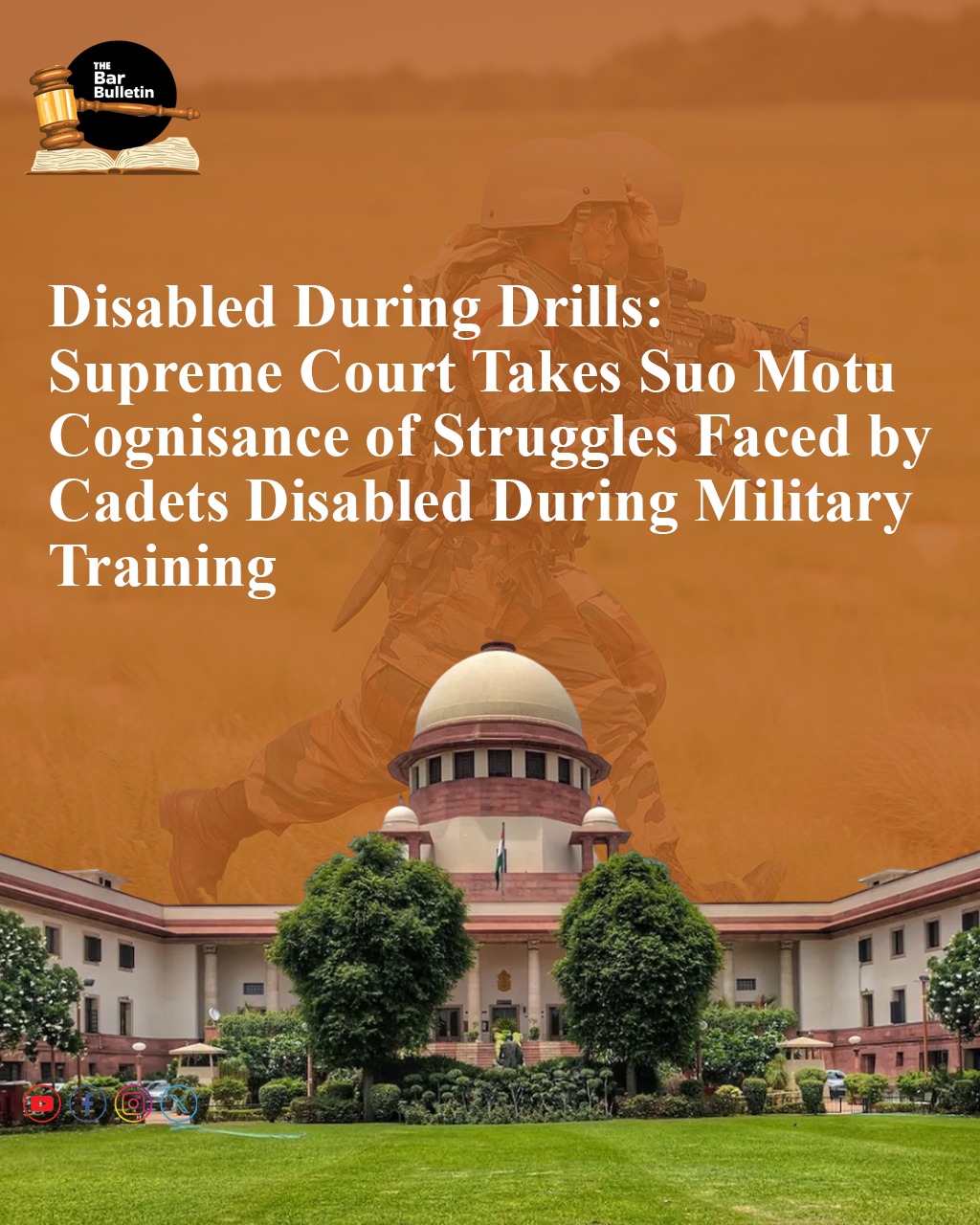The Supreme Court of India has taken suo motu cognisance of the hardships faced by cadets who incur disabilities during military training at the country’s premier defence institutions. This move follows investigative reports, including a detailed feature in The Indian Express dated 12 August 2025 titled “Mounting medical bills, nowhere to go: Braveheart cadets disabled in military training struggle in shadows”, which brought national attention to the plight of these young cadets, medically discharged after disabling injuries at the National Defence Academy, Indian Military Academy, and similar institutions.
The Bench comprising Justice BV Nagarathna and Justice R Mahadevan is set to hear the matter next on 18 August 2025. The core issue at hand is the lack of institutional and financial support for cadets who, prior to their formal commissioning, suffer life-altering injuries and are consequently discharged on medical grounds. Since these injuries take place before commissioning, affected cadets are currently ineligible for ex-servicemen status and its associated welfare measures, including disability pensions, medical facilities under the Ex-Servicemen Contributory Health Scheme (ECHS), and other benefits routinely extended to commissioned officers and soldiers.
Recent media reports have highlighted the heavy burden placed on such individuals, who are left to shoulder long-term medical expenses, rehabilitation costs, and social disadvantages, without comprehensive support from the armed forces or the Ministry of Defence. Many of these cadets, despite having been selected for elite service and demonstrating exceptional dedication, find themselves excluded from the protections guaranteed to serving and retired personnel, simply due to the timing of their injuries.
The Supreme Court’s intervention, prompted by these revelations, marks a significant step towards potentially reshaping the legal and policy landscape for disabled cadets. The case is already generating considerable attention from veterans’ groups, defence analysts, and public interest organizations.
The Bench is expected to seek responses from the Ministry of Defence and related authorities on the rationale behind existing rules, the scope for extending welfare benefits, and the mechanisms available for the rehabilitation and long-term care of such individuals.
The Court is likely to examine not only the denial of ex-servicemen status but also the adequacy of medical and financial assistance, disability recognition, and the living conditions faced by these former cadets. Policy reform, enhanced eligibility for welfare schemes, and targeted rehabilitation measures are among the remedies that may be considered.



